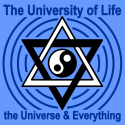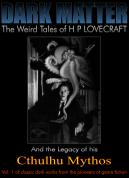Behold the first Universal Truth from The Priory of Universal Truth…
Moderation is the key to Happiness.
A little bit of everything really does do you good – the trick is knowing how much a little is!
For the purposes of this Universal Truth the concept of moderation is specific to finding the mean, or middle ground, between the extremes of excess and deficiency in ALL things – for only there at the prime or optimum amount can the benefit or virtue of a thing be found.
The philosophical idea of moderating one’s thoughts and behaviour being a virtuous path that culminates in the achievement of a Higher Purpose or Ideal Self (or, less philosophically perhaps, a happier and healthier life) has long been with us. Moderation is synonymous with the notion of Temperance – one of Plato’s (and Christianity’s) four cardinal virtues and a principle that is also found in eastern traditions such as Buddhism and Hinduism. It is also one of six virtues in modern Positive Psychology classification.
Solon of Athens (7th century BCE), said to be one of the Seven Sages of Greece and responsible for framing the laws that shaped the Athenian democracy, stated “Keep everything with moderation”.
The Buddhist Middle Way (6th century BCE) taught that a Central or Middle Path between the extremes of religious asceticism and worldly self-indulgence (or between the extremes of self-mortification and sensual indulgence), leads to liberation and enlightenment (or inner happiness).
The Confucian “Doctrine of the Mean” (5th-4th century BCE) teaches of attaining the highest order of virtue – a state of joy, peace and contentment. Its guiding principle is that one should never act in excess but maintain balance and harmony by keeping one’s mind and actions in a state of constant equilibrium.
The Temple of Apollo in Delphi (built 7th-4th century BCE) had three phrases carved into stone above the entrance within its forecourt: “Know Thyself”, “Nothing in Excess” and “Go Bail and Ruin is at Hand” (i.e. no good deed goes unpunished).

Aristotle
Aristotle’s Golden Mean (4th century BCE), often summed up as
“Moderation in all things”
states that all that is good (or virtuous) in this life is a balancing act between two evils; a greater, active, indulgent evil (a vice) and a lesser, inactive, passive one (a flaw).
Aristotle makes clear in his Nicomachean Ethics the assertion that a virtuous life was a happy life.
“Happiness is an operation according to perfect virtue.”
Thomas Aquinas (13th century CE) observed in his Summa Theologica
“… evil consists in discordance from their rule or measure. Now this may happen either by their exceeding the measure or by their falling short of it; as is clearly the case in all things ruled or measured … it is evident that moral virtue observes the mean.”
Although Aquinas agrees with Aristotle that happiness is linked to virtue, he believed that true (or absolute) happiness was only attainable in an after-life with God.

St Thomas Aquinas
“Enough is as good as a feast”
(English Proverb, 15th century CE)
… and, lets face it, enough is also much more preferable than a famine. Put another way – the right amount is as good as too much, and is certainly way better than too little.
Even the “Great Beast” Aleister Crowley (1875-1947) himself, who famously said “Do what thou wilt shall be the whole of the law”, acquiesced that… “Balance every thought with its opposition. Because the marriage of them is the destruction of illusion.”
“A little of what you fancy does you good”
(Vaudeville song famously sung by Marie Lloyd, 1915)
… a little being just the right amount to enjoy or feel the benefit of something. It should be worth noting that a little bit of what you don’t fancy does you good too… consider the principle of vaccination and the practice of Mithridatism (protecting oneself against a poison by gradually self-administering non-lethal amounts).
“A virtue is a conscious moderation of the Self for the sake of happiness, health, peace, social harmony and proactive cooperation. In a strong society virtue should be encouraged as GOOD.”
(The Priory of Universal Truth, 2010)
… “A vice (or excess) is a conscious over-indulgence of the Self regardless of the consequences to others and often even to one’s self. Vice is purely selfish and should be curtailed as EVIL.”
… “A flaw (or deficiency) is a (largely) unconscious under-indulgence of the Self caused by inadequacies, faults or failings in a person’s personality, character and behaviour. Flaws should be treated and accepted as INDIFFERENT.”
The Priory of Universal Truth is drawing up a list of Universal Truths HERE. Learn and Master these truths and your Ideal Self can be attained.
——————–
Enter the Priory of Universal Truth
Copyright © 2012-15 Harbinger451 – All Rights Reserved


















